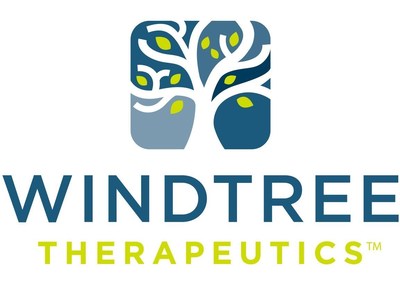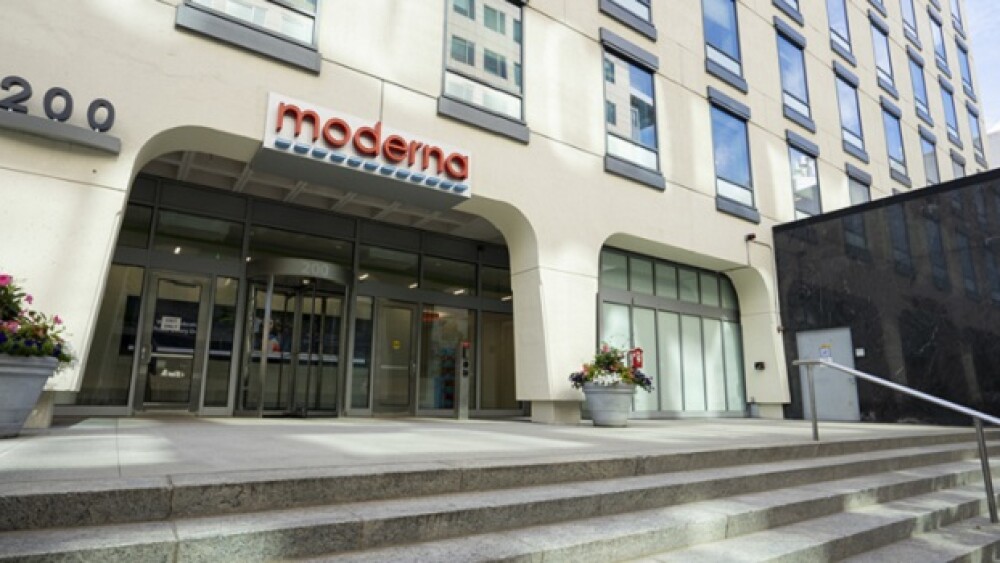Windtree Presents Data in Premature Infants 26 to 32 Weeks Gestational Age at the 2018 Hot Topics in Neonatology Annual Meeting
|
WARRINGTON, Pa., Dec. 10, 2018 /PRNewswire/ -- Windtree Therapeutics, Inc. (OTCQB: WINT) today announced that data from the AEROSURF® phase 2 clinical program in premature infants with respiratory distress syndrome (RDS) was presented at the 2018 Hot Topics in Neonatology Annual Meeting (2018 Hot Topics) held December 2 - 5 in Washington D.C. The presentation was titled "Aerosolized Lucinactant Delivered via Nasal CPAP to Improve or Prevent Bronchopulmonary Dysplasia in Preterm Neonates 26 to 32 Weeks PMA with RDS."
The AEROSURF phase 2 clinical program in premature infants consisted of three (two open-label; one blinded) multicenter, randomized, controlled clinical trials in a total of 341 premature infants receiving nasal continuous positive airway pressure (nCPAP) for RDS. The trials were designed to evaluate the safety and tolerability and potential effectiveness of aerosolized KL4 surfactant in reducing the need for invasive intubation and mechanical ventilation compared to infants receiving nCPAP alone. The data presented at the 2018 Hot Topics focused on a follow-on analysis of 261 preterm infants 26-32 weeks gestational age (GA) with RDS who required supplemental oxygen (FiO2 ≥ 0.25) and had not been previously intubated. Bronchopulmonary Dysplasia (BPD) was assessed as a secondary endpoint in these trials. The objective of this analysis was to assess the effectiveness of AEROSURF in reducing the incidence and severity of BPD. In these two studies of 261 premature infants (166 active, 95 control), AEROSURF appeared to reduce the incidence and severity of BPD whether defined as the need for supplemental oxygen at 36 weeks post-menstrual age or by the National Institutes of Health (NIH) definition. Decreases in the incidence of BPD were seen for AEROSURF-treated patients compared to control in both trials (p=0.02 for the results for infants 26-28 weeks GA, p=NS for 28-32 weeks GA). The combined post hoc analysis demonstrated a reduction in BPD from 17% in the control group infants to 8% in the AEROSURF-treated infants, a relative reduction of 53% (p=0.04). A decrease in both the incidence and in the severity of BPD in infants receiving ≥ 75 mg TPL/kg of AEROSURF in all 261 patients combined was also observed. Bronchopulmonary Dysplasia (BPD), a chronic lung disease of the newborn, is one of the most common complications of prematurity and treatments for RDS. It occurs in up to 40% of infants born at or before 28 weeks GA who have required intubation, mechanical ventilation and oxygen therapy. BPD is associated with ongoing pulmonary disease, neurodevelopmental impairment and increased healthcare utilization. BPD contributes to substantial patient morbidity and healthcare costs. Despite its importance, effective prevention and treatment strategies for BPD have been elusive and there is no approved treatment. "The AEROSURF phase 2 clinical program data thus far are encouraging because we are seeing signals suggesting that AEROSURF may be reducing nCPAP failures and thus intubations, as well as having an impact on reducing the development and severity of BPD in this population. If these results are confirmed by future clinical data, AEROSURF would represent a significant medical advancement in neonatology," commented Craig Fraser, Chief Executive Officer. Based on the results of AEROSURF phase 2 clinical program, the Company plans to conduct a 70 patient bridge study of its new phase 3 Aerosol Delivery System (ADS) medical device and work with regulators to develop a phase 3 regulatory and clinical plan. While the reduction of nCPAP failures and need for intubation is anticipated to remain the primary endpoint in phase 3, measuring the potential impact on the incidence and severity of BPD will be an important secondary measure. The Hot Topics in Neonatology Annual Meeting is an internationally recognized medical meeting dedicated to advancing the practice of neonatology and is attended by more than 1,000 neonatologists and perinatologists each year. The AEROSURF phase 2 clinical program was supported, in part, by both a $1.9 million Phase II award under a $2.6 million Fast Track Small Business Innovation Research (SBIR) grant and a $2.6 million Phase IIb grant from the National Heart, Lung, and Blood Institute (NHLBI) of the National Institutes of Health (NIH) under parent award number R44HL107000. The content of this press release is solely the responsibility of the Company and does not necessarily represent the official views of the National Institutes of Health. About AEROSURF® About Windtree Therapeutics For more information, please visit the Company's website at www.windtreetx.com. Forward-Looking Statements
SOURCE Windtree Therapeutics, Inc. |
Company Codes: OTC-PINK:WINT, OTC-QB:WINT |





